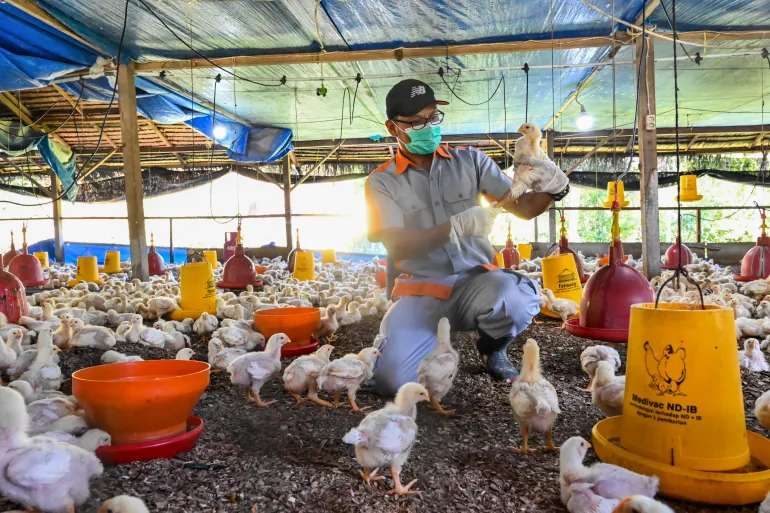The World Health Organisation (WHO) has issued a warning to Nigeria and other countries to prepare for a possible flu pandemic by increasing their budgetary allocation to health and improving their primary healthcare system. Dr Walter Mulombo, the WHO Country Representative, made this statement during the commemoration of World Health Day and the WHO’s 75th anniversary.
According to Dr Mulombo, many countries continue to see health as a luxury or a financial burden, instead of an essential factor for socio-economic development. He emphasized the importance of investing in social determinants of health such as nutrition, education, environment, water, hygiene, and sanitation. Dr Mulombo further noted that only 20% of the already poor healthcare budget goes to primary healthcare, where 80% of the population receives their first encounter with healthcare services.
Dr Mulombo warned that the world is still expecting a flu pandemic, and health facilities are not adequately prepared to face such a challenge. He cited the COVID-19 pandemic, which caught the world unprepared, as an example. Dr Mulombo further lamented that the challenge of demographic transition is not an easy one because the facilities that were built in the colonial period are still in use.
“The challenge of demographic transition is not an easy one because the facilities that were built in the colonial period are still the same. I’m not talking about Nigeria here, I’m talking about the general picture and it may be possible that it is the same situation,” Dr Mulombo added.
Recall that in March 2023, the Ministry of Health of Chile notified the WHO of a laboratory-confirmed case of human infection caused by the avian influenza A(H5) virus in the region of Antofagasta. While confirming that an outbreak investigation is ongoing, the WHO noted that the Chile case was a single human infection, and no further cases had been identified so far.
It is important to note that the world has experienced several flu pandemics throughout history. The most severe was the Spanish Flu pandemic in 1918, which killed millions of people worldwide. Since then, the world has witnessed several flu pandemics, including the 2009 H1N1 pandemic, which killed an estimated 284,000 people worldwide.
The WHO has been at the forefront of efforts to prevent and control flu pandemics. The organization has developed a Global Influenza Surveillance and Response System (GISRS) to monitor the spread of flu viruses and provide guidance on the development of vaccines and other interventions.
In Nigeria, the government has taken some steps to improve the healthcare system. For example, the government launched the Basic Healthcare Provision Fund in 2019, which aims to provide financial support for basic healthcare services for alls. The government has also implemented several health interventions, such as the polio eradication campaign and the distribution of insecticide-treated nets to prevent malaria.
However, there is still a long way to go. Nigeria’s healthcare system faces several challenges, such as inadequate funding, poor infrastructure, and a shortage of healthcare workers. The country also has a high burden of diseases such as malaria, tuberculosis, and HIV/AIDS.
Investing in primary healthcare is crucial to building a strong and resilient healthcare system. Primary healthcare is the first point of contact for most of the population, and it is essential for preventing and controlling diseases. By strengthening primary healthcare, countries can improve access to essential healthcare services, reduce the burden of diseases, and improve the health outcomes of their populations.
In conclusion, the WHO’s warning about a possible flu pandemic is a call to action for governments to prioritize health and invest in their healthcare systems. By increasing their budgetary allocation to health and improving their primary healthcare system, countries can better prepare themselves for any future health challenges. It is crucial that countries prioritize investing in social determinants of health to improve the overall health outcomes of their populations. As we commemorate World Health Day and the WHO’s 75th anniversary, let us remember that health is a fundamental right and that investing in healthcare is an investment in our collective future.



